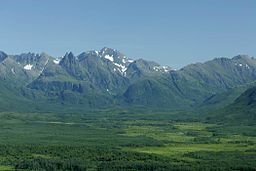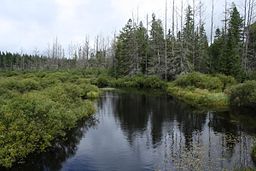Wilderness Survival Camps:
Criteria for a Wilderness Bug Out Survival Location
Having one or several wilderness survival camps set up within easy reach of your home will greatly improve your chances of surviving a TEOTWAWKI event. While you can prepare by having shelter equipment on hand, you can go out and prepare your camp ahead of time, so you can ditch everything at home and go straight to the camp in the case of a disaster.

Location
The first consideration is the location of the camp. Youll need to find a balance between ones that are far enough away from your home so that they dont get caught up in whatever disaster has befallen your house, but close enough that you can walk to with a few bags of essentials in the case of an EMP that knocks your car out. You will need:
- To be close to a source of water
- A plan of how to provide food once your emergency rations run out
- To think about how to protect your camp against natural predators and aggressive survivors
Fuel Sources
When you are setting up your wilderness survival camps, you need to think about the proximity of fuel sources to the camps. Fuel will help to keep you warm at night, cook your food to kill off bacteria and provide a certain level of protection against intruders. Wood is the obvious source of fuel, so it may be worth laying a store of cut firewood at your camp ahead of time. If no wood is available, rushes and other long grasses make for good fuel, but both need advance drying and preparation to be usable.
Food and Water
Once you have made the wilderness camp and found a good long-term fuel supply, your next thought should be how to feed and hydrate yourself for the long term. Initially, a few packs of MRE or a supply of canned foods will suffice to keep you going, but in a true apocalyptic event, help may never arrive.

You will need a variety of ways to purify any collected water beyond using water purification tablets, which will eventually run out. Solar distillation and simple rock boiling will help you rid the water of harmful bacteria. Having a filtration system or knowing how to build one will prove helpful in removing other nasties in the water.
In terms of food, you will need to source shrubs and trees that provide berries and nuts. Also since you are setting up your camp to be used as a bugout retreat, plan on a camouflage garden, aka "stealth garden," by planting things like squash, potatoes, tomatoes, peppers, beans and peas. Most people wont recognize them as food, and yet, should you need to bugout, you will have a source of food.
If you plan to hunt or fish, then you should scout the local area to see what wildlife makes the area around your survival camp its home. You can almost always find squirrels and rabbits. You will also want to make sure that you acquire, and learn to use, the tools necessary to catch your dinner: rifle, snare wire, fishing equipment and dont forget a knife.
Sanitation
Long-term wilderness survival camps need careful planning for cleanliness and sanitation. If you have to stay in the camp for weeks or months on end because the hospitals are out of action, any injury or infection can be life threatening. In terms of cleanliness, your proximity to a water source will allow you to keep clothes and utensils clean, and a good source of engine oil will help keep rust off your implements.
In terms of sanitation, you will have to resort to digging latrines a good distance away from your camp. A latrine is simply a large trench that you use instead of a bathroom. You will need to find a way to cover it up to keep predators away and mask the smell when the wind blows. For instance, even sprinkling wood ash over the open pit will help to eliminate much of the odor.
Security of Wilderness Survival Camps
Finally, your wilderness camps need to be easily defended against unwanted intruders that might be local wildlife looking for easy prey or other survivors who want an easy supply of food and water. Try to use natural defenses like rocks and trees as boundaries to your camp and set traps or trip wires to alert you if something or someone is getting too close. Lastly, make sure you extinguish your fire before you go to bed to avoid being surprised in your sleep.
Return from Wilderness Survival Camps to Survival Retreat





New! Comments
Have your say about what you just read! Leave me a comment in the box below.